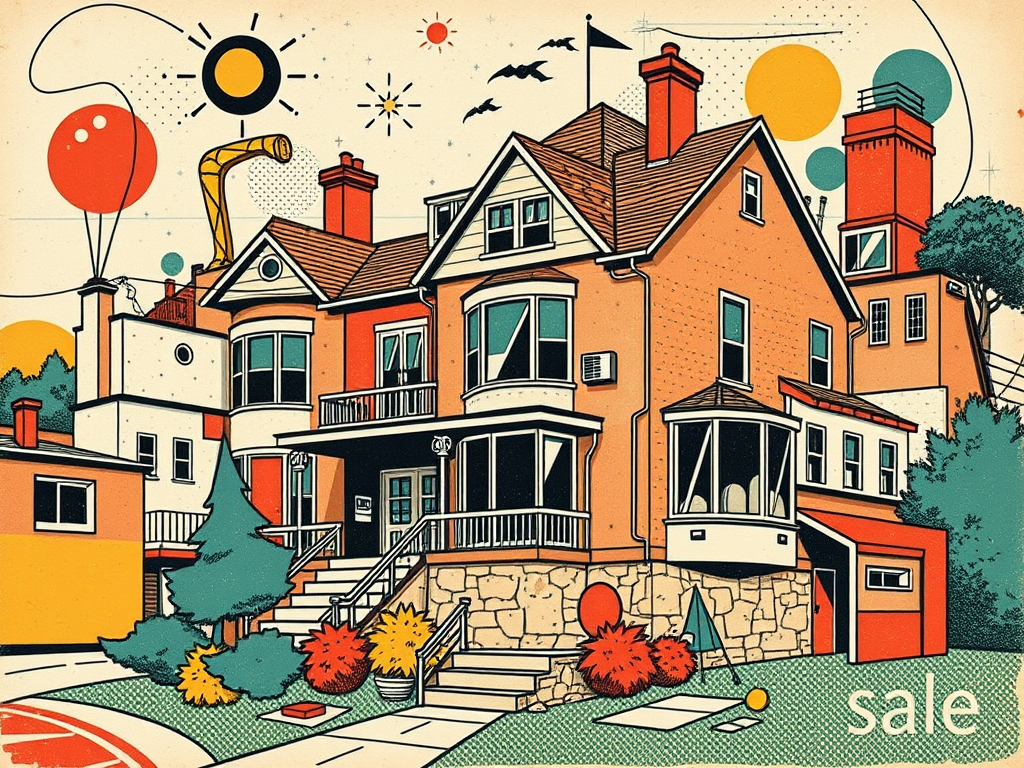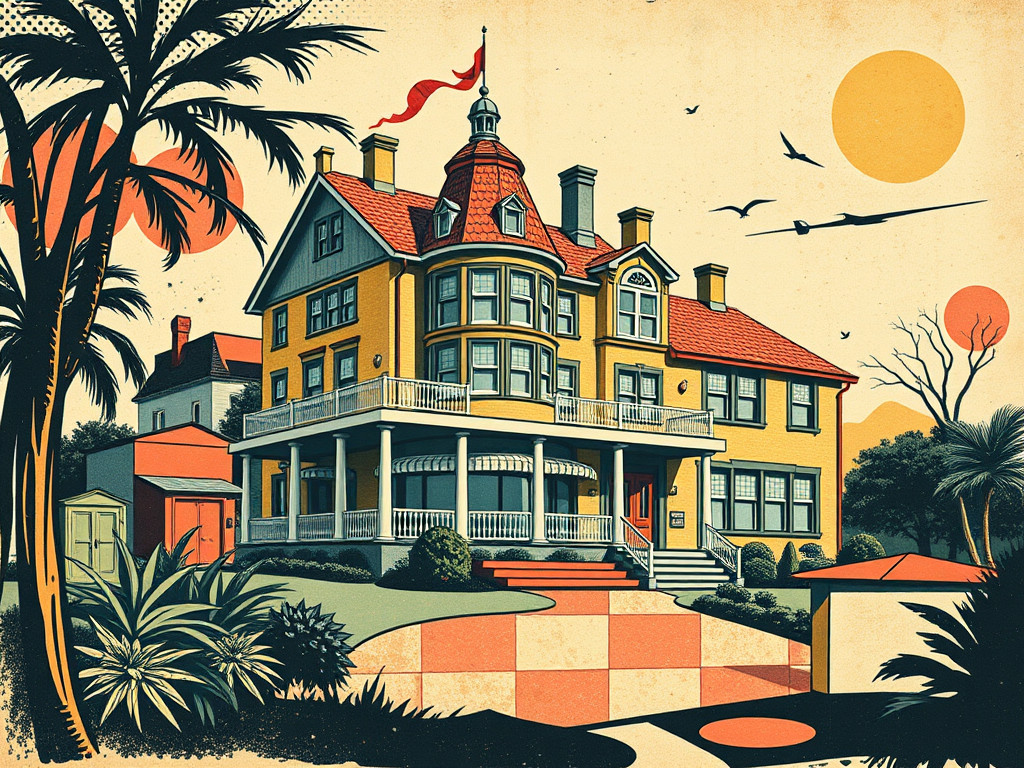
Unique Properties: Buying a Windmill, Monastery or Lighthouse in Greece
Reading time: 15 minutes
Table of Contents
- Introduction
- The Allure of Unique Properties in Greece
- Windmills: A Slice of Greek History
- Monasteries: Spiritual Retreats Turned Homes
- Lighthouses: Beacons of Coastal Living
- Legal Considerations for Purchasing Unique Properties
- Renovation and Restoration Challenges
- Investment Potential and Market Trends
- Cultural and Historical Significance
- Practical Aspects of Living in Unique Properties
- Environmental and Sustainability Factors
- Financing Options for Unique Greek Properties
- Conclusion
- FAQs
Introduction
Greece, a country steeped in history and blessed with breathtaking landscapes, offers a unique opportunity for those seeking to invest in properties that are far from ordinary. The prospect of owning a windmill, monastery, or lighthouse in this Mediterranean paradise is not just a real estate transaction; it’s an invitation to become a custodian of Greek heritage. This comprehensive guide will explore the intricacies of purchasing these distinctive properties, providing insights into the economic, cultural, and practical aspects of such an investment.
The Allure of Unique Properties in Greece
The Greek real estate market has always held a special place in the hearts of international investors. However, the allure of unique properties such as windmills, monasteries, and lighthouses has grown significantly in recent years. This trend is part of a broader shift in the global property market, where discerning buyers are increasingly seeking properties with character, history, and a story to tell.
Economic data suggests that while the overall Greek property market has seen fluctuations, the niche market for unique properties has demonstrated remarkable resilience. This resilience is attributed to several factors:
- Limited supply of such properties
- Growing interest in sustainable and historic living spaces
- Potential for high-end tourism and rental income
- The romantic appeal of owning a piece of Greek history
As we delve deeper into each property type, we’ll explore how these factors play out in the current economic landscape.
Windmills: A Slice of Greek History
Historical Significance and Architectural Beauty
Greek windmills, particularly those found on the Cycladic islands, are iconic structures that have stood the test of time. Originally built to harness the power of the Mediterranean winds for grinding grain, these cylindrical stone buildings with their distinctive sail-like blades have become synonymous with the Greek landscape.
From an investment perspective, windmills offer a unique proposition. The limited number of these structures, combined with their historical significance, creates a scarcity that drives value. Recent market data indicates that restored windmills in prime locations can command premium prices, often 30-40% higher than comparable traditional properties in the same area.
Renovation Challenges and Opportunities
Purchasing a windmill often involves significant renovation work. This presents both challenges and opportunities for investors:
- Structural integrity: Many windmills require extensive reinforcement and restoration of original stonework.
- Interior adaptation: Converting the circular space into a livable area demands creative architectural solutions.
- Historical preservation: Renovations must often comply with strict heritage preservation guidelines.
Despite these challenges, successfully restored windmills have shown excellent returns on investment, both as private residences and as unique vacation rentals. The key lies in balancing modern amenities with historical authenticity.
Monasteries: Spiritual Retreats Turned Homes
From Sacred Spaces to Private Sanctuaries
Greek monasteries, with their centuries of history and spiritual significance, represent a different kind of investment opportunity. The conversion of these sacred spaces into private residences is a delicate process, both legally and culturally. However, for those who navigate this successfully, the rewards can be substantial.
Economic analysis shows that converted monasteries often appreciate at rates significantly above the market average. This is due to several factors:
- Expansive spaces and land holdings
- Architectural uniqueness and historical value
- Potential for multi-use development (e.g., retreat centers, boutique hotels)
Legal and Cultural Considerations
Purchasing a monastery involves navigating a complex web of legal and cultural considerations. Investors must be prepared to engage with:
- Church authorities and local communities
- Heritage preservation boards
- Zoning and land use regulations
These factors can significantly impact the timeline and cost of acquisition and renovation. However, successful projects have shown that the end result can be a property of unparalleled character and value.
Lighthouses: Beacons of Coastal Living
Coastal Real Estate with a Twist
Lighthouses represent the pinnacle of coastal living, offering unparalleled views and a unique connection to maritime history. In Greece, where the coastline stretches for thousands of kilometers, lighthouses hold a special place in the country’s nautical heritage.
From an investment standpoint, lighthouses present an interesting case:
- Extremely limited supply, with many still under government control
- Prime coastal locations with potential for development
- Strong appeal in the luxury and experiential travel markets
Recent market trends show that when lighthouses do become available for private purchase, they often command prices well above standard coastal properties, sometimes by a factor of 2-3 times.
Regulatory Challenges and Environmental Considerations
Investing in a lighthouse property comes with its own set of challenges:
- Strict coastal development regulations
- Environmental impact assessments
- Potential restrictions on alterations to the structure
However, for investors willing to navigate these challenges, lighthouses offer the potential for truly unique living spaces or high-end hospitality ventures.
Legal Considerations for Purchasing Unique Properties
The legal landscape for purchasing unique properties in Greece is complex and requires careful navigation. Key considerations include:
- Property ownership verification: Ensuring clear title, especially for historical properties
- Zoning and land use regulations: Understanding what modifications and uses are permitted
- Heritage protection laws: Compliance with regulations governing historically significant structures
- Environmental regulations: Particularly relevant for coastal properties like lighthouses
It’s crucial for investors to work with legal experts familiar with Greek property law and the specific nuances of these unique property types. The investment in proper legal guidance can save significant time and resources in the long run.
Renovation and Restoration Challenges
Renovating unique properties like windmills, monasteries, and lighthouses presents a set of challenges distinct from typical real estate projects:
- Sourcing authentic materials: Maintaining historical accuracy often requires specialized materials
- Finding skilled craftsmen: Traditional building techniques may be required
- Balancing modernization with preservation: Incorporating modern amenities while respecting historical integrity
- Navigating bureaucratic processes: Obtaining necessary permits and approvals can be time-consuming
Despite these challenges, successful restoration projects have shown remarkable returns on investment, both financially and in terms of cultural preservation.
Investment Potential and Market Trends
The investment potential of unique properties in Greece is closely tied to broader economic trends and the specific dynamics of the Greek real estate market. Current data points to several interesting trends:
- Growing international interest: Unique properties are attracting a global investor base
- Resilience to market fluctuations: These properties often maintain value better than standard real estate during downturns
- Potential for diverse income streams: From high-end rentals to cultural events and tourism
Analysis of recent sales data shows that well-restored unique properties have appreciated at rates 2-3 times higher than the average Greek real estate market over the past decade.
Cultural and Historical Significance
Investing in a windmill, monastery, or lighthouse is not just a financial decision; it’s an investment in Greek cultural heritage. These properties often come with rich histories and stories that add immeasurable value to the ownership experience.
Owners of such properties often find themselves taking on the role of cultural custodians, which can bring both responsibilities and rewards. This aspect of ownership can be particularly appealing to those interested in sustainable and culturally sensitive investment approaches.
Practical Aspects of Living in Unique Properties
While the romance of owning a piece of Greek history is undeniable, practical considerations must also be addressed:
- Accessibility: Many unique properties are in remote or hard-to-reach locations
- Utilities and infrastructure: Ensuring modern amenities in historical structures can be challenging
- Maintenance: Upkeep of historical properties often requires specialized skills and can be costly
- Community integration: Becoming part of the local community and respecting local traditions
Successful owners often find that these challenges are outweighed by the unique living experience and connection to Greek culture and history.
Environmental and Sustainability Factors
In an era of increasing environmental awareness, unique properties in Greece offer interesting opportunities for sustainable living:
- Energy efficiency: Adapting historical structures with modern, eco-friendly technologies
- Water conservation: Implementing traditional and modern water management systems
- Land stewardship: Many properties come with significant land holdings, allowing for sustainable agriculture or conservation efforts
These sustainability aspects can not only reduce the environmental impact but also potentially increase the property’s value and appeal in the long term.
Financing Options for Unique Greek Properties
Financing the purchase and renovation of unique properties in Greece can be more complex than standard real estate transactions. Key considerations include:
- Limited traditional mortgage options: Many banks may be hesitant to finance non-standard properties
- Higher down payment requirements: Buyers often need to bring more capital to the table
- Specialized lenders: Some financial institutions specialize in loans for historical or unique properties
- Government incentives: Potential tax breaks or grants for historical preservation
Investors should be prepared for a more involved financing process and may need to explore creative funding solutions.
Conclusion
Investing in a windmill, monastery, or lighthouse in Greece represents a unique opportunity to own a piece of Mediterranean history and culture. While these properties come with their own set of challenges – from legal complexities to renovation hurdles – they also offer unparalleled potential for those seeking a distinctive investment and living experience.
The current economic landscape, characterized by a growing appreciation for unique and historical properties, suggests that these investments can be both financially rewarding and personally fulfilling. As with any significant investment, thorough research, expert guidance, and a clear understanding of the responsibilities involved are crucial.
For those drawn to the idea of becoming custodians of Greek heritage while also seeking a potentially lucrative investment, these unique properties offer a compelling proposition. Whether it’s the windswept charm of a Cycladic windmill, the serene grandeur of a converted monastery, or the coastal allure of a lighthouse, these properties stand as testaments to Greece’s rich history and enduring appeal.
As you consider your options in the Greek real estate market, don’t overlook the potential of property in peloponnese and other unique locations. The combination of historical significance, investment potential, and the unparalleled lifestyle these properties offer makes them a truly special category in the world of real estate.
FAQs
-
Q: Are there any restrictions on foreigners buying unique properties in Greece?
A: While foreigners can generally purchase property in Greece, there may be additional approvals required for properties of historical significance. It’s essential to work with a local legal expert to navigate any specific restrictions.
-
Q: How do renovation costs for unique properties compare to standard real estate?
A: Renovation costs for unique properties like windmills or monasteries can be significantly higher than standard properties, often 2-3 times more expensive due to specialized materials and craftsmanship required.
-
Q: What are the potential returns on investment for these types of properties?
A: While returns can vary, well-restored unique properties have shown appreciation rates 2-3 times higher than average Greek real estate over the past decade, especially when utilized for high-end tourism or rentals.
-
Q: Are there any government incentives for restoring historical properties in Greece?
A: Yes, the Greek government offers various incentives for historical property restoration, including potential tax breaks and grants. However, these often come with strict guidelines on preservation and use.
-
Q: How does owning a unique property impact property taxes in Greece?
A: Property taxes for unique or historical properties can be complex. In some cases, there may be higher valuations due to the property’s uniqueness, while in others, there might be tax benefits for historical preservation. Consultation with a local tax expert is crucial.

Article reviewed by Jean Dupont, Institutional Investment Advisor | ESG & Impact Investing Pioneer | Aligning Profit with Purpose for Pension Funds, on March 28, 2025





